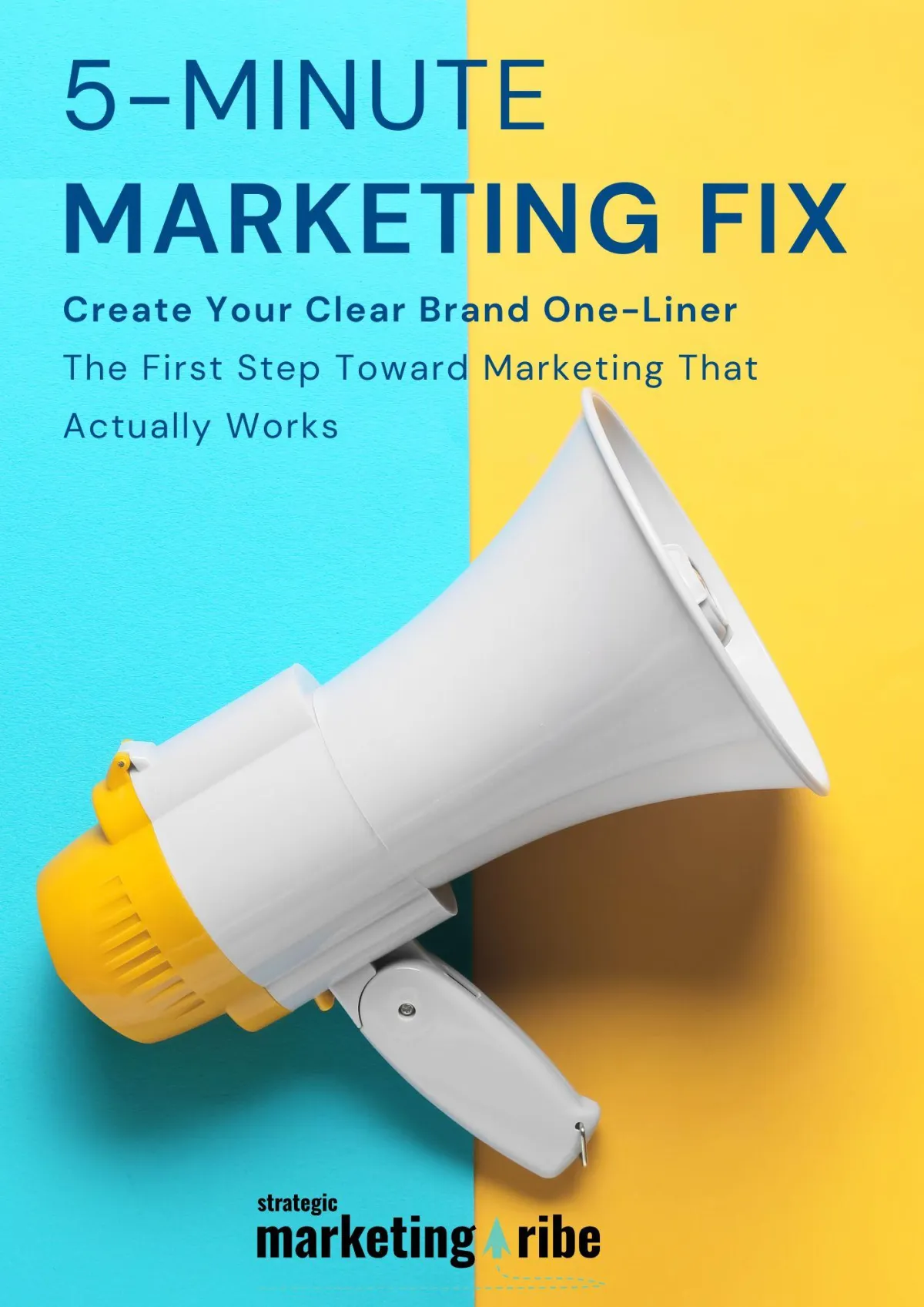STORY, MEET STRATEGY
Let’s make marketing feel less robotic and more real.
Find resources that bring your message—and your business—to life.

ChatGPT Public Chats Indexed by Google—Here’s What It Means for You
By Vicky Sidler | Published 14 August 2025 at 12:00 GMT
For a brief and mildly chaotic moment, your ChatGPT conversations could have been popping up in Google search results—like a stranger rummaging through your digital junk drawer.
If you had ever clicked the “share” button on a chat, created a link, and made it discoverable, congratulations—you were starring in a very niche corner of the internet without even knowing it.
This wasn’t ChatGPT exposing everyone’s chats by default. It was an experiment, since ended, that allowed deliberately shared conversations to be indexed by search engines. The problem? Most people didn’t realise “shared” could mean “Google-able.”
TL;DR
Some deliberately shared ChatGPT chats were briefly indexed by Google
This was part of a short-lived OpenAI experiment, now removed
Even “harmless” chats can reveal personal or business details
Treat anything shared online as potentially public—forever
Need help getting your message right? Download the 5-Minute Marketing Fix.
Table of Contents
ChatGPT Public Chats Indexed by Google—Here’s What It Means for You
Why This Matters to Small Business Owners:
How to Stay Safe in a Search-Indexed World:
1. Don’t Share Sensitive Business Info in Public AI Links:
2. Use Local or Private Storage for Drafts:
3. Check Your Digital Footprint Regularly:
4. Build a Public Profile You’re Happy to Be Found:
A Personal Example of Online Visibility
Start with the 5-Minute Marketing Fix:
AI Investment Gap Hits $600B—Here's What That Means for You
AI Copyright Lawsuit: What Small Businesses Must Know Now
Em Dashes Trigger AI Alarms—What Small Biz Owners Should Know
AI Ethics vs Progress: Should Small Brands Opt Out?
Zero-Click Search Is Real—Here's How to Beat It
FAQ: ChatGPT Public Chats and Search Engine Indexing
Were all ChatGPT conversations made public?
How did these chats end up on Google?
Could personal or business details have been exposed?
Why should small business owners care?
What Actually Happened:
TechCrunch’s Amanda Silberling spotted that URLs ending in /share—generated when users clicked “share” in ChatGPT—were appearing in Google and Bing search results.
Some were harmless (bathroom renovation tips), some were awkward (failed job application rewrites), and some were flat-out bizarre (a microwave safety guide involving Satan).
OpenAI confirmed it was testing “ways to make it easier to share helpful conversations” and has since ended the experiment, citing “too many opportunities for folks to accidentally share things they didn’t intend to.”
Why This Matters to Small Business Owners:
Even if you’re not sharing AI-assisted bathroom plans, this matters for one reason: anything you post online, intentionally or not, can travel far beyond its intended audience.
That includes:
Draft marketing copy with sensitive pricing
Sales scripts with unfinalised offers
Brainstorming notes that reveal product roadmaps
Conversations that mention client names
You might think, “I only shared it with a link.” But as with public Google Drive files, “link sharing” can quickly turn into “search result sharing” if it’s indexed.
How to Stay Safe in a Search-Indexed World:
Even though OpenAI’s specific experiment is over, the principle holds: once it’s online, you can’t fully control where it goes. Here’s how to stay smart:
1. Don’t Share Sensitive Business Info in Public AI Links:
Treat AI chats like open-air cafes—fine for casual talk, not for confidential plans.
2. Use Local or Private Storage for Drafts:
If you need to share AI-generated content for review, save it as a PDF or screenshot, then send it via secure channels instead of public share links.
3. Check Your Digital Footprint Regularly:
Google your business name, unique phrases from your copy, and even unusual client project terms to see what’s out there.
4. Build a Public Profile You’re Happy to Be Found:
If people do stumble across your content, make sure it reflects well on you. This is where a clear brand message and consistent tone are your best insurance.
A Personal Example of Online Visibility
This situation reminded me of something that happened back when I was a full-time journalist at an online tech news publication.
One of my colleagues published a photo of me standing next to a giant TV to demonstrate its size. Harmless enough—until someone commented that I was “ugly” and that they should’ve used a more attractive model.
That comment ended up showing in Google search results for my name. I confronted the commenter, and to their credit, they apologised and removed it. It no longer appears when you search me, but that doesn’t erase the fact that it was out there for a while.
The experience stuck with me—not because my ego was bruised, but because it reminded me how quickly something you didn’t post yourself can shape your online presence.
The Marketing Lesson:
Your message is always on the record. Whether it’s a blog post, a shared doc, or a ChatGPT conversation, assume your audience is larger than you expect.
That’s why having a crystal-clear way to describe your business matters—so if you do show up unexpectedly in a search result, you’re not just visible, you’re compelling.
Start with the 5-Minute Marketing Fix:
It’s a simple, free tool that helps you create a one-liner explaining your business so well that even a surprise Google result works in your favor.
Because in marketing—and in AI experiments—you never know who’s watching.
Related Articles
AI Investment Gap Hits $600B—Here's What That Means for You
Big Tech is throwing $600B at AI infrastructure while revenue lags. This article breaks down what small businesses can learn from the gap between hype and reality.
AI Copyright Lawsuit: What Small Businesses Must Know Now
Disney’s lawsuit against Midjourney proves that AI creativity comes with legal landmines. Find out how to avoid copyright trouble before your marketing gets you sued.
Em Dashes Trigger AI Alarms—What Small Biz Owners Should Know
Yes, even punctuation can get you flagged as AI-generated content. Here’s how overusing em dashes could hurt your credibility online.
AI Ethics vs Progress: Should Small Brands Opt Out?
Do you use AI built on scraped data to compete, or reject it on principle? This piece helps you weigh the ethical risks against the business rewards.
Zero-Click Search Is Real—Here's How to Beat It
Google is answering user queries directly in search results—cutting your website out of the click. Learn strategies to win visibility even when the clicks disappear.
FAQ: ChatGPT Public Chats and Search Engine Indexing
Were all ChatGPT conversations made public?
No. Only chats that users deliberately shared, created a public link for, and marked as “discoverable” were indexed. This was part of an OpenAI experiment that has now ended.
How did these chats end up on Google?
Once a shared chat link was marked as discoverable, search engines like Google could index it—just like they can with public Google Drive links.
Is this still happening?
No. OpenAI ended the experiment after deciding it created “too many opportunities” for accidental oversharing.
Could personal or business details have been exposed?
Yes. Even seemingly harmless chats can include identifiers—like client names, pricing, or project details—that you wouldn’t want public.
Why should small business owners care?
Because anything you put online, intentionally or not, can spread beyond your control. That includes AI chats, documents, and casual posts.
How can I prevent this in future?
Treat all shared links as public, even if you think they’re private. Use secure channels for sensitive material and regularly search your business name to see what’s out there.
What’s the marketing takeaway?
Always assume your message could be seen by anyone. Make sure even “accidental” exposure reflects well on you.

Vicky Sidler
Vicky Sidler is a seasoned journalist and StoryBrand Certified Guide with a knack for turning marketing confusion into crystal-clear messaging that actually works. Armed with years of experience and an almost suspiciously large collection of pens, she creates stories that connect on a human level.

STOP LOSING LEADS BECAUSE YOU CAN’T EXPLAIN WHAT YOU DO
Use this free worksheet (with AI prompts) to write a one-liner that makes people say “I need that”.
By submitting this form, you agree to our Terms of Service and to receive occasional emails from us. You can unsubscribe at any time.
By submitting this form, you agree to our Terms of Service and to receive occasional emails from us. You can unsubscribe at any time.
Created with clarity (and coffee)





